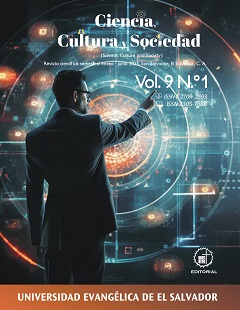Social and microeconomic factors of monetary poverty in salvadoran households
DOI:
https://doi.org/10.69789/ccs.v9i1.689Keywords:
poverty, logit model, probit model, El SalvadorAbstract
This research presents two binomial probability models that aim to establish the relationship between the factors that determine the likelihood that a Salvadoran household is monetarily poor. To achieve this, once the models are specified, a marginal effects analysis is conducted, explaining the effects of the probit model, as it is the model that best fits the available statistical data. The study shows that the three factors with the greatest influence on the probability that a Salvadoran household is not poor are as follows: (a) if the head of the household has some type of university degree, the probability of poverty decreases by 15.55%; (b) if the household has internet service, the probability decreases by 9.24%; finally, (c) the probability of a household being poor increases by 14.59% if the head of the household is self-employed.
Downloads
128
Downloads
Published
How to Cite
Issue
Section
License

This work is licensed under a Creative Commons Attribution-NonCommercial-ShareAlike 4.0 International License.
The authors give to the copyright to the journal Ciencia, Cultura and Sociedad, and copyright in all forms and media, to be notified of acceptance of your article. The authors can publish their articles in another journal after a semester published in this volume. The content of the articles is the sole responsibility of the authors. To refer to the articles correctly quote the authors.

Ciencia, Cultura y Sociedad articles are published in open access and are under a Creative Commons Attribution-NonCommercial 4.0 International License.

